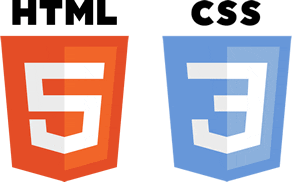
Search engine optimization (SEO) is for real one of the most crucial parts of having a successful online business. That’s because the higher your website ranks on search engines, the more likely people will visit your website. That makes sense, right? Who goes beyond the first few pages of a search engine? And if you can use the search engine to redirect to your website, that spells business (if it’s done correctly). Let’s get into what you should know about organic SEO.
First and foremost, what is organic SEO? I’m talking about when you type into google, “Charlotte Web Designer” and see what pops up. And not in the form of a paid ad. Just the straight up most popular Charlotte web designers. Now, how does Google figure out which websites to place at the top of search results? The answer depends on if your website has the following:
- Relevant content
- Fast site speed
- A good reputation (i.e., do other websites reference and link to it)
- Visitors lingering on your website
And that’s it. It’s simple, but not so simple that you can set your website and forget it. After all, that’s why we at Web Symphonies specialize in Charlotte SEO services (but not just Charlotte). Someone has to maintain these things and make tweaks here and there. However, there are some things that don’t require vast technical knowledge that you can do on your own to improve organic SEO.
1. Keywords of course!
I’ve said it before and I’ll say it again: keywords are key. And they aren’t just single words like “website,” but the words and phrases someone might type into a search engine like, “How do I improve my search engine ranking in Charlotte, N.C.?” For SEO to work, you have to strike a balance between broad enough terms that people regularly search to find a business like yours, and specific enough terms you have a chance of ranking high. For instance, “best web designer in Charlotte, N.C.” versus “web designer.”
Not only do we have location-specific keywords, but also informational keywords. People use search engines to answer questions or provide solutions to problems. (In fact, you might have gotten here because you googled, “How do I improve my search engine ranking in Charlotte, N.C.”?) These kinds of keywords are informational keywords. To find the informational keywords right for your business, think about the kinds of questions your business can answer. And then answer those questions in the form of a blog.

For more help, use free online tools like Google Keyword Planner and Ubersuggest to learn how many people search for a particular keyword and how competitive it is to rank for that keyword. (Are there millions of people using that keyword? Or only hundreds?)
2. Use your real estate
Now that you have your keywords, make sure they appear within your site, meaning the page titles and descriptions include those keywords and explain what is on each page. Be honest about it because search engines are smart will detect any keyword stuffing – meaning repeating a keyword over and over again, or using multiple keywords on a page title. For help with updating page titles and descriptions, reach out to us.
Your website real estate is not only page titles and descriptions, it’s also filenames! Search engines review every nook and cranny of your website so choose filenames for your photos and videos that describe what’s in them with your target keywords. There’s also the alt tags and title names of the images and videos. Don’t be afraid to write “Charlotte internet marketing” or whatever somewhere in the image description or alt tag.
3. Keep it current
You know how Web Symphonies has a new blogpost every month? And it’s about how to boost local SEO or inexpensive ways to promote your business? That’s for good reason. We strive to provide relevant, current content that you can use. We want you to come back and visit us, but also writing these blogposts gives search engines more content to scour. We’re supporting you, our client, while also improving our SEO. Score.
Another way to stay current is to make sure your target keywords are still the ones you want to prioritize. Are you checking your SEO progress? Has web traffic increased? Are your keywords actually working? The answers to those questions will go a long way in helping you maintain (or increase!) your SEO ranking.
4. Bring in the specialists
We’ve covered ways that you, personally, can boost your SEO but the reality is there are also technical aspects that affect search engine rankings. Stuff like site speed and site structure. For those sorts of things, it’s best to bring in a specialist (like Web Symphonies!) because otherwise you can really muck up your website. If you’d like help improving your SEO, reach out to us today. We’re happy to help.
Web Symphonies here to let you know everything you need to know about organic SEO and how it can help your business grow.



